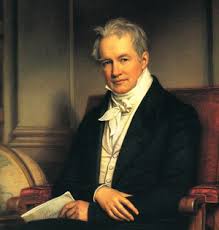I’m thinking out loud here but that’s because I’m also a bit troubled by where we are going in higher education in particular, not to mention everything else.
Last night a bunch of my colleagues got themselves arrested at the Board of Trustees meeting to protest the lack of a public budget for the university. This is nothing really new because we’ve been protesting austerity for years now and the non-violent protesting is something that some of my colleagues have been doing for many years as well. They’ve managed to do some pretty heroic big lifts, such as pushing back a $485 million unilateral budget cut by our governor but alas, most of the efforts can best be seen as treading water. Austerity is the name of the game in the entire industrialized world and simply holding position is an effort.
The key problem isn’t austerity though. It’s neoliberalism. In case you haven’t figured it out liberalism itself isn’t exactly a progressive or left philosophy or politics. It’s a bourgeois ideology based on 19th century understandings of non-aristocratic pro-business thinking supercharged by the kind of economy that has at the root extreme outcomes. Liberalism invented the standard distribution, tolerated the trade union and saw a role for public goods and a type of meritocracy based on work, talent and access, but neoliberalism is based on very unequal distributions that benefit the corporate world by eroding tax collections, weakening the nation-state and using symbolic violence and the illusio of apparent merit to benefit the rentier class that owns the stocks, holds the bonds and sits on the museum boards and supports the political class. Neoliberalism uses quantitative means and the language of objective science to weaken and de-legitimize public goods and institutions.
In the university this means erosion of public funding and the substitution of that with tuition, philanthropy and measured of outcomes based on rational ideas of management. Rationalization means that you mis-recognize the catastrophic drop in funding as something else altogether, such as “unprepared” students, teachers who don’t embrace technology or who aren’t effective. That’s perceived as being rational and legitimate but the bottom line is it’s simple mis-recognition of the real problem, which is a downward spiral of funding.
It also means recasting the university as something different from what it actually is, and more to the point redefining faculty as something that they aren’t, or at least as casting what is only a part of what they are as the whole.
The modern university is more than student outcomes. I want to make it clear that student outcomes are important and have to be considered, but the university is not just that. It’s an enlightenment institution designed to create knowledge across disciplines independent of the state. Humboldt created the university on very infertile ground too: the Prussian authoritarian state.
Humboldt’s university was a liberal institution and as such it was widely adopted, including here in the United States where it was the inspiration for the Morrill Act. As Americans weren’t Prussians it was intended to benefit the mechanical and agricultural arts while the Prussian state was more interested in developing a cadre of educated people who could administer the state on rational, scientific grounds, it took another generation to really become a research based knowledge creating institution but from the start it was intended to be lightly regulated and independent.
The key feature of the model developed by Humboldt was not what we would call undergraduate education. The main feature was the Lehrstuhl, or the independent professional engaged in building up new knowledge in a given field. American higher education was, prior to the reforms sparked by the founding of Stamford, Chicago and Johns Hopkins, mostly seminaries and finishing schools, was undergraduate and limited professional education but the Morrill Act and these research institutions sparked something quite new, which is the dominant American research university.
I have to stop and go back to work…



